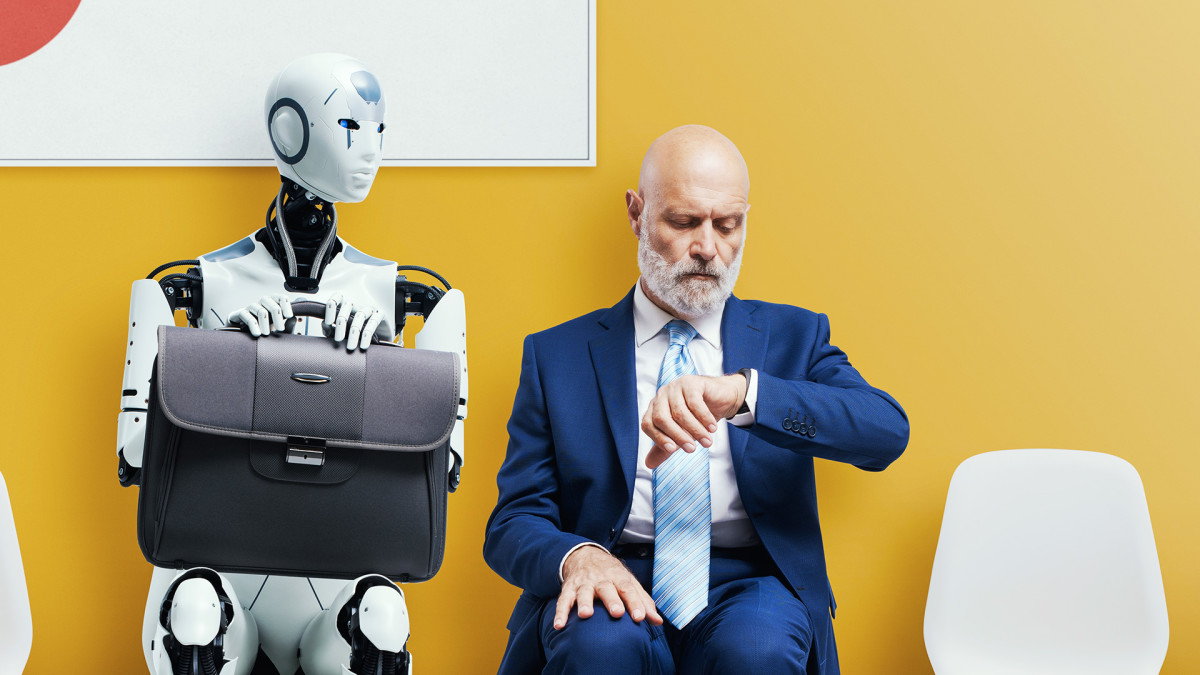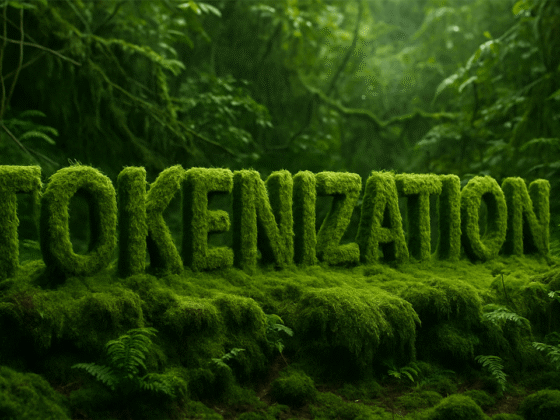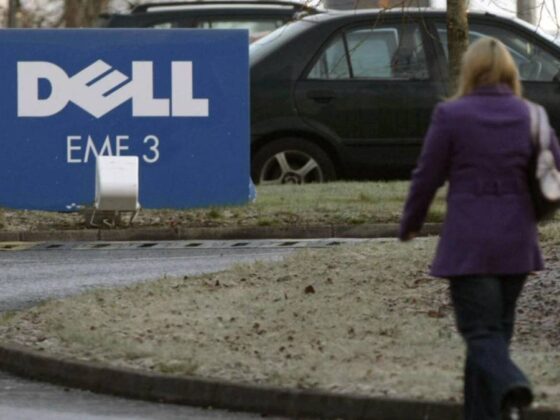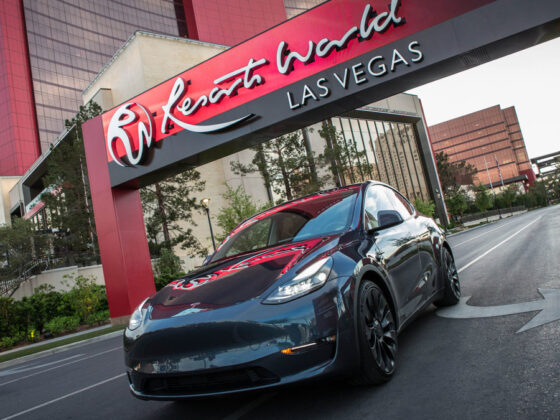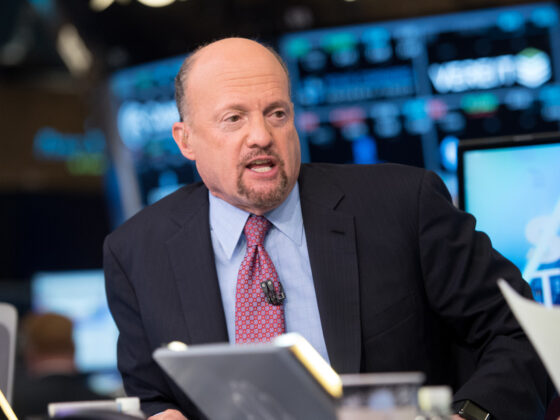Artificial intelligence (AI) will impact nearly every area of life although people disagree about what that will look like. Some people fear a Terminator-style situation where AI-powered robots rise up to “protect” humanity from itself.
Most take a more measured view on the technology and see the risks. but want to put them in their place. Dr. Sriraam Natarajan, a professor of computer science in the Erik Jonsson School of Engineering and Computer Science at The University of Texas at Dallas, takes a more accepting view of AI.
Related: Analysts unveil bold Amazon stock price target before earnings
“I want to reassure everyone that AI-driven Armageddon is not happening,” Natarajan said. “‘The Terminator’ is a great movie. ‘The Matrix’ is great, but they are fiction and are not going to happen in reality.”
He points out that AI does not think, and it's not going to be able to know more than the inputs it's fed.
“There’s this idea of artificial intelligence becoming all-knowing, pervasive, and understanding everything, but we are not even close to having that type of technology. It’s science fiction, a fantasy created by humans,” he added.
But just putting aside fears of robots taking over does not put to rest all concerns about the technology's impact on humanity. Billionaire Mark Cuban recently went on X, the former Twitter, to take questions on the impact of AI.
He did not express any fears of a “Terminator” or “Battlestar Galactica” robot uprising, but he does have some worries about the technology.
Mark Cuban answers key AI question
Cuban has been a very open person on social media. He interacts with his audience and often just takes questions. In a recent X version of a Reddit Ask Me Anything, he fielded a lot of questions on AI.
“Very Orwellianish. Very 1984ish. Very a Clockwork Orangish. Sadly, the number one users will be students, which means they will cheat their way through school/college and end up learning nothing, much like now. It then spreads to ‘professionals,' like doctors,” @Pacifica2525 posted.
Cuban's response suggested that a difficult profession was about to get even harder as he addressed teachers, schools, and the use of AI.
“Within 5 -10 years, if a school teaches in a manner where answers by students can be generated by a model, it's a sh**ty school and way behind. We know kids will always take the path of least resistance; schools will have to change the path and how they learn, with AI as part of the solution. The days [of] teaching like it's 2024 will soon need to end,” he posted.
More Experts:
- Stocks and Markets Podcast: Prairie Operating CEO on energy business
- Dave Ramsey warns Americans on Social Security
- Legendary fund manager reveals new trades after S&P 500 rally
Many respondents shared the methods their kids' schools have been using to prevent AI-based cheating.
“My kid's school requires math done on paper with a pencil and book/research reports written in cursive by hand. AI helps, but it can't do that yet. I guess Optimus will be able to do that someday,” shared Jonathon D.
Satu Unelmia shared an even bolder solution.
“They should require a video presentation to accompany the papers that the student should have to explain what they wrote about, what they learned while researching it, and what different sources they used to find information. AI could help in some areas but I think the most important thing is the student actually learned enough to speak with confidence on the topic,” they wrote.
AI is already a problem for schools
Cuban is not alone in thinking that AI will create massive headaches for teachers.
The University of Illinois Urbana-Champaign addressed the issue in a recent report.
“Generative AI is here to stay, and its impact on the field of education will only grow as artificial intelligence continues to develop. While the specter of students using AI to cheat has raised concerns among educators around the world, the potential positive and productive uses of AI counterbalance those fears,” the school's Office of Communications wrote.
One of the problems is that students use AI far more than teachers do, according to a national survey conducted by Tyton Partners.
Teachers need to use AI more:
- 27% of students reported being regular users of generative AI tools; only 9% of instructors had done the same.
- Nearly half of students have tried AI writing tools at least once; 71% of instructors have never tried AI tools.
“It’s in educators’ best interests to understand the uses and advantages of AI and to be aware of the challenges of the technology,” according to the University of Illinois report.
Teachers need to be aware of how AI can be used to cheat.
“Cheating and plagiarism are, as mentioned, chief among the AI concerns raised by educators. If AI is used to complete assignments or exams or write papers, it is unfair to the students who don’t cheat, and it undermines the education and learning process for those who do cheat,” the report shared.
Cuban believes that AI could be a force for good in teaching, but that current educational models should be thrown out. He talked about this in an address to the National Governors Association.
“Why wouldn’t you, A) first make the determination for what you want your kids to learn, whether it’s your own kids you’re home-schooling or kids at school,” Cuban said. “Is it just reading, writing, ‘rithmetic so that they could do well on tests? Or is it logical thinking. Is it critical thinking, in addition to reading, writing, and ‘rithmetic?”
The billionaire “Shark Tank” host believes it's up to schools and investors to reinvent how they teach (or be replaced by AI).
“We have this unique tool that’s never existed before. We have to use that for a way to teach that’s never been done before,” he added.
Related: Analysts turn heads with new Alphabet stock price target after earnings

